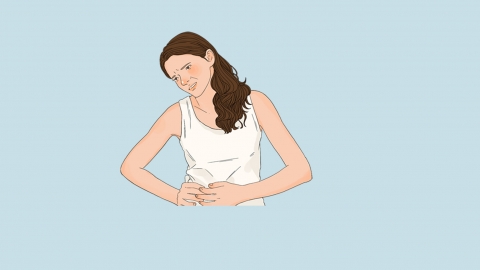What is the difference between body coldness and uterine coldness?
Body coldness is a general cold condition characterized by insufficient yang energy throughout the entire body, while palace coldness (gonghan) specifically refers to a localized discomfort caused by deficient yang energy in the uterine area. These two conditions differ in their scope of influence, symptoms, affected populations, causes, and treatment priorities. A detailed explanation is as follows:

1. Scope of Influence: Body coldness affects the whole body, causing cold hands and feet, chills, and impairing metabolism and blood circulation. Palace coldness is limited to the uterus and surrounding areas, mainly affecting the reproductive system and lower abdomen.
2. Symptom Presentation: Individuals with body coldness often appear pale, feel fatigued easily, are sensitive to cold, and have loose stools, with symptoms worsening in cold environments. Those with palace coldness primarily experience menstrual irregularities such as delayed periods, light menstrual flow, and dysmenorrhea, along with discomforts like cold pain in the lower abdomen and clear or watery vaginal discharge.
3. Affected Populations: Body coldness has no gender or age restrictions and is common in people who are chronically exposed to cold, have irregular diets, or exercise infrequently. Palace coldness mainly affects women, especially adolescent and women of childbearing age, as well as those who do not recover properly after childbirth or regularly consume cold foods.
4. Causes: Body coldness is associated with constitutional weakness, staying up late, fatigue, consuming cold foods, lack of exercise, and prolonged exposure to air-conditioned environments. Palace coldness is often caused by getting chilled during menstruation, wearing belly-revealing clothing, contact with cold water after childbirth, taking cold-natured medications, or emotional depression that affects uterine yang energy.
5. Treatment Priorities: Body coldness requires overall yang energy enhancement, including consuming warm foods such as lamb and ginger, regular exercise, and keeping warm. Palace coldness focuses on warming the uterus; besides daily warmth and a warm diet, applying heat patches to the lower abdomen and improving blood circulation and qi regulation can help enhance uterine function.
Those experiencing these conditions are advised to keep warm, adjust their diet to include more warm and nourishing foods, and consistently engage in moderate exercises such as brisk walking or yoga to improve overall health and alleviate discomfort.




